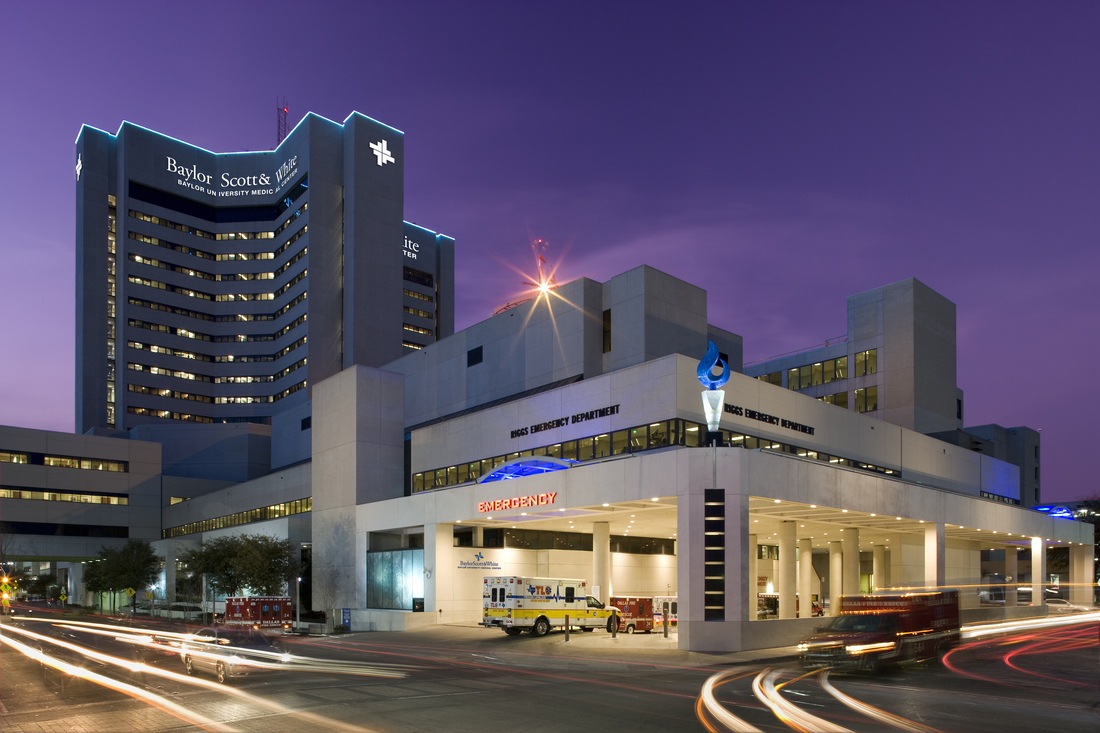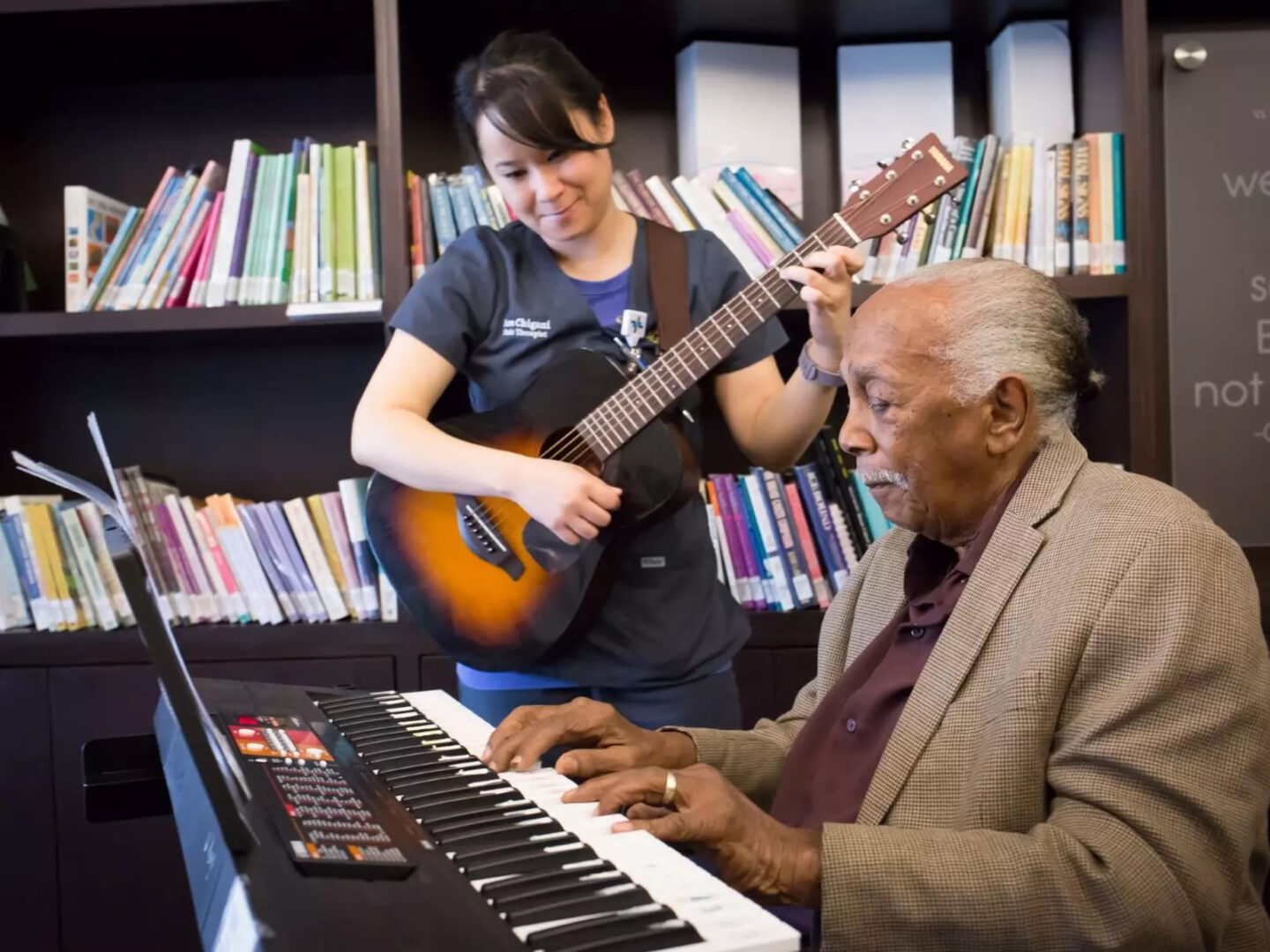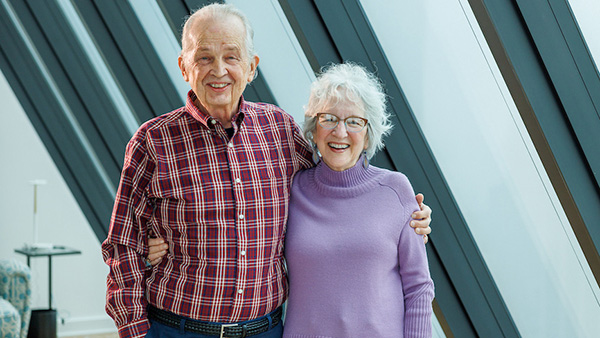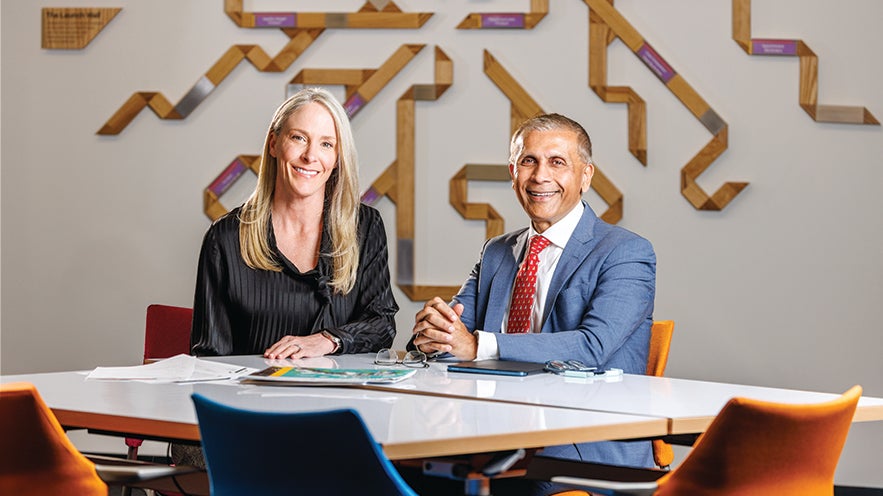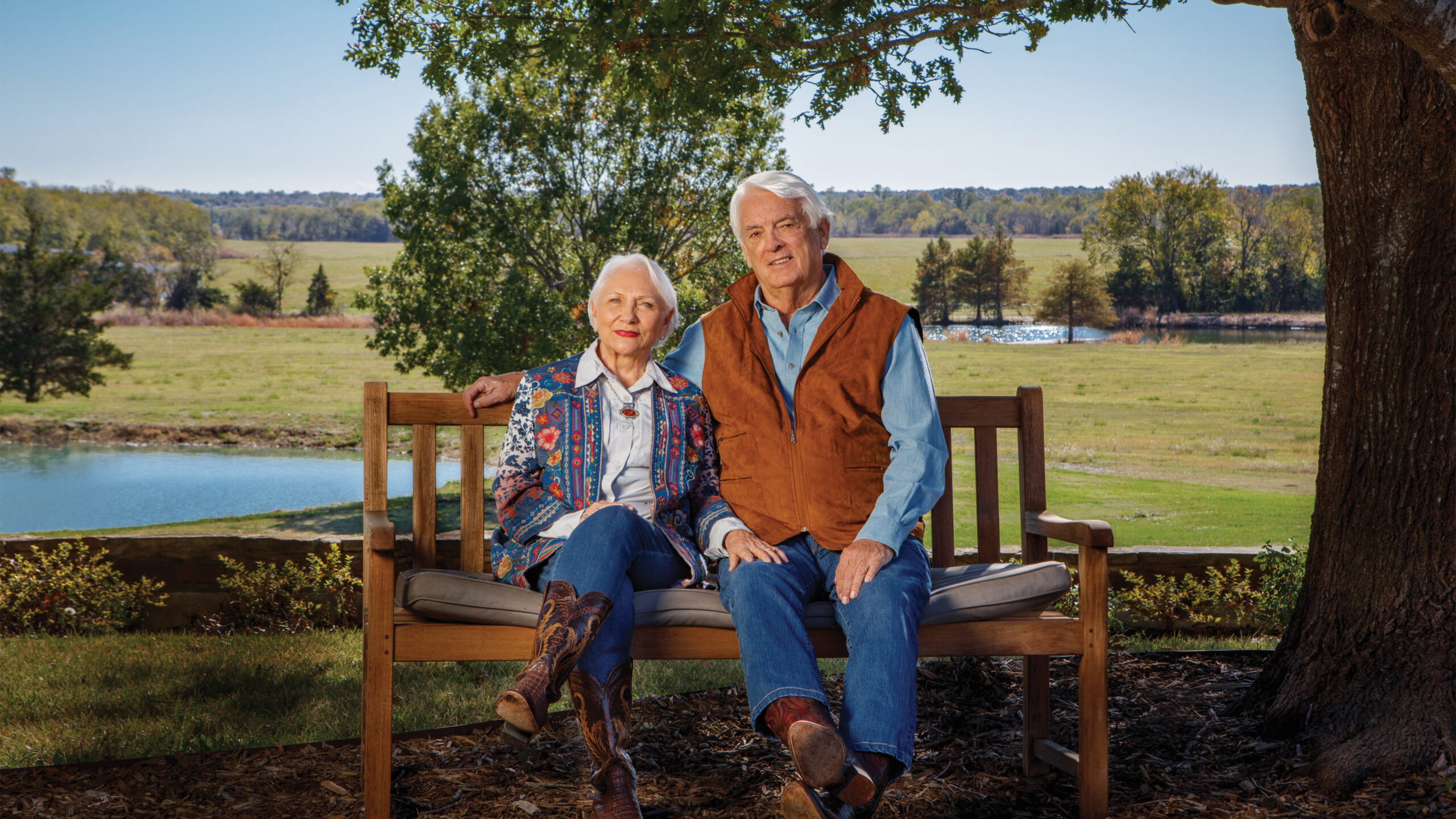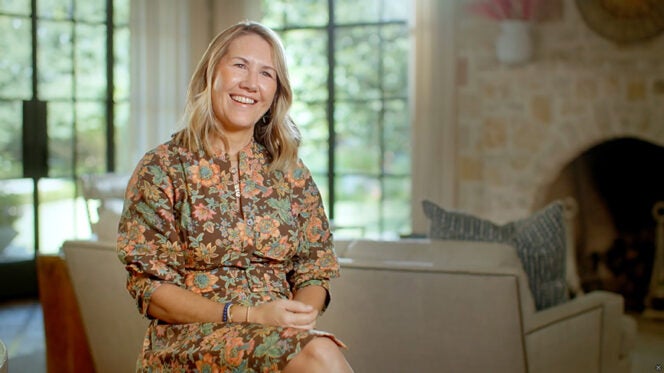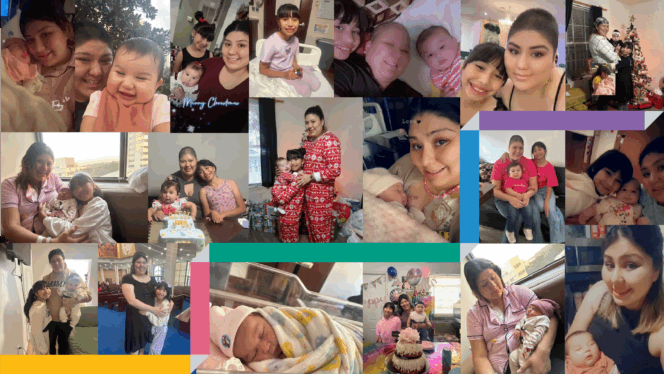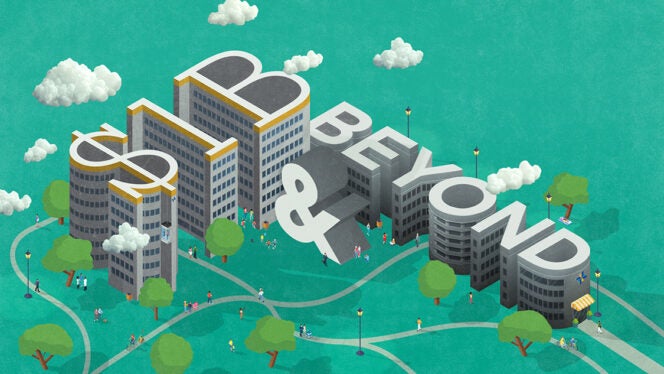In this Article
Sandra and Gary Fernandes put their minds and hearts into making a difference for those living with Alzheimer’s and other memory disorders.
In this Article
Gary Fernandes likes to joke that he and his wife Sandra live two existences, their “city life” and their “country life.” Half of their week is spent at their home in Dallas, seeing friends and meeting colleagues, and the other half finds them on their property in Fannin County, boots on, breathing in the sweet fragrance of their land near Honey Grove.
They also split their time between being a grateful patient family and impassioned donors bent on making a difference for others.
Gary knew that Alzheimer’s and dementia was a serious issue for families, but when his beloved wife, Sandra, received a diagnosis of Alzheimer’s, he said it was as if life had “somehow changed completely.”
“At that point, you’re shocked with the reality of such a diagnosis, and particularly with a subject about which there’s so little information. It’s one of those things no one wants to talk about,” he lamented. “How many people have you met who say, ‘My loved one has been diagnosed with Alzheimer’s?’ No…there’s stigma associated with this diagnosis.”
All the questions
Gary, a retired executive for EDS and founder of Convergent Partners, noticed signs that something was not quite right for his wife, and immediately called friends who recommended Sandra receive testing at Baylor Scott & White Neuroscience Center’s AT&T Memory Center, an outpatient program that evaluates patients for memory disorders and provides comprehensive care to the patient and their family.
Alzheimer’s disease, Sandra’s diagnosis, is a progressive disease that destroys memory and other important mental functions. According to the Centers for Disease Control and Prevention, in 2020, as many as 5.8 million Americans were living with Alzheimer’s disease.
And yet, it’s a diagnosis that can feel very isolating. The words themselves are hard to hear, Gary said. “It’s often the first time this person has been confronted with the reality that this may be happening to them,” he explained. “It makes you doubt your own self-worth.”
Immediately, questions began running through Gary’s mind: “It was the stuff of everyday life: When should she stop driving? What about the possibility of her wandering off and getting lost? Those are just some of the hundreds of questions that came up.”
Specialty assistance
Gary and Sandra were grateful to have experienced clinicians to turn to.
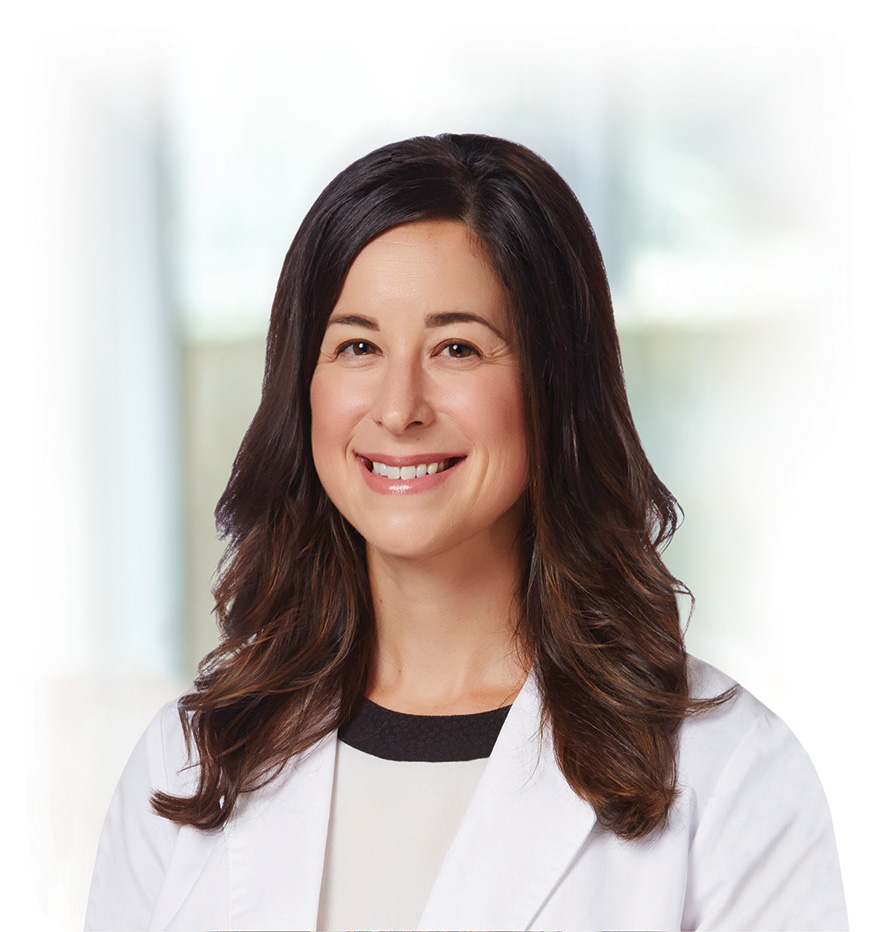
“One of the things that makes our clinic so unique is the support we provide to the patient and their family starting at the initial diagnosis,” said Claudia R. Padilla, MD, research medical director of the AT&T Memory Center. Patients meet with a multidisciplinary team that includes behavioral neurologists and neuropsychologists at the center, which also offers resources including a care and support specialist and experienced nurses.
“Every day, I receive a comment from a patient or family member regarding how warm, friendly and approachable our staff is,” Dr. Padilla said.
“That is so important for the patient and the family as they face many challenges through the course of the disease.” Dr. Padilla knows firsthand the experience of being a family member: Her grandfather and grandmother both suffered from Alzheimer’s. Watching their battles inspired her decision to provide this level of specialized care.
The dedication and expertise offered by the AT&T Memory Center have improved Sandra’s life and his own, Gary said. “The center made a huge difference by giving Sandra the right medications at the right time.” The progression of Sandra’s symptoms has slowed, and her anxiety and depression—diagnoses that many patients with Alzheimer’s also battle—have been greatly reduced. “While we can’t cure Alzheimer’s, we can make an impact on the symptoms,” Gary said.
Expanding availability of care
The Fernandes family feels strongly that this specialty care should be available to anyone battling memory disorders. They are grateful for the care they received at the AT&T Memory Center, a specialized facility that philanthropy helped create and continues to sustain its efforts to treat patients and assist families.
“I started thinking about the people I knew, and what a difficult time they had with Alzheimer’s,” Gary said. Demand is high for this specialty care, and many people are forced to go without. “As good as your internist or primary care physician may be, they just don’t have the understanding and focus on Alzheimer’s and how to deal with it, much less treat it.”
Specialized resources are necessary, Gary knew—even people with financial means, connections to care and excellent family support still need greater availability of care, he said. “And then people who don’t? Oh my God! How do they handle this?”
Gary and Sandra Fernandes have pledged their own support to be part of the change they wish to see. The family has made a gift of $100,000 to help support needs now, and has included in their estate plan a gift of $500,000 in general support of the AT&T Memory Center.
“My old boss Ross Perot said, ‘If you see a snake, you’ve gotta kill it,’” Gary said. “If we can help come up with resources or support, we’ve got to do it. So we’ve decided to do something.” Gary now invites everyone to join him and Sandra in supporting the center’s expansion.
“My old boss Ross Perot said, ‘If you see a snake, you’ve gotta kill it.’ If we can help come up with resources or support, we’ve got to do it. So we’ve decided to do something.”
–Gary Fernandes
Relying on Medicare reimbursement alone won’t allow for the availability of care or the comprehensive services that are needed, said Cindy Marshall, MD, director of the center. “Every dollar donated translates into care,” she said. “The importance of philanthropic support to our center cannot be overstated: The need for specialized care today is great and it’s growing.
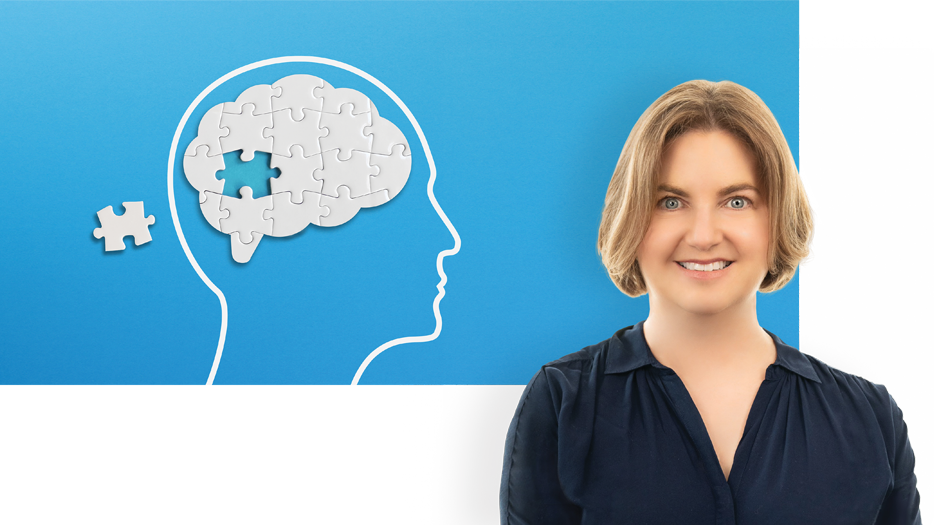
Cindy Marshall, MD, director of the AT&T Memory Center
Our model is uniquely equipped to provide care for patients and their families who need us now, and for those who will need us in the future. This is where you can join us in making a difference.”
While the world prays that medical science one day discovers a cure for Alzheimer’s, Gary knows that patients and their families living with the disease now cannot wait.
“We want to bring more focus to current patients. Research gets all the attention, but where we can make a big impact is the AT&T Memory Center, where we can help people dealing with this disease now and for years to come,” he said. “That’s where I hope we can make progress now while others support research. That’s what I hope comes from this: more attention and action.”
Philanthropic support helped create the AT&T Memory Center and provides ongoing support each year. For more information on how you can support this important work, please contact Tim Moore at 214.820.7877 or Timothy.Moore@BSWHealth.org.
